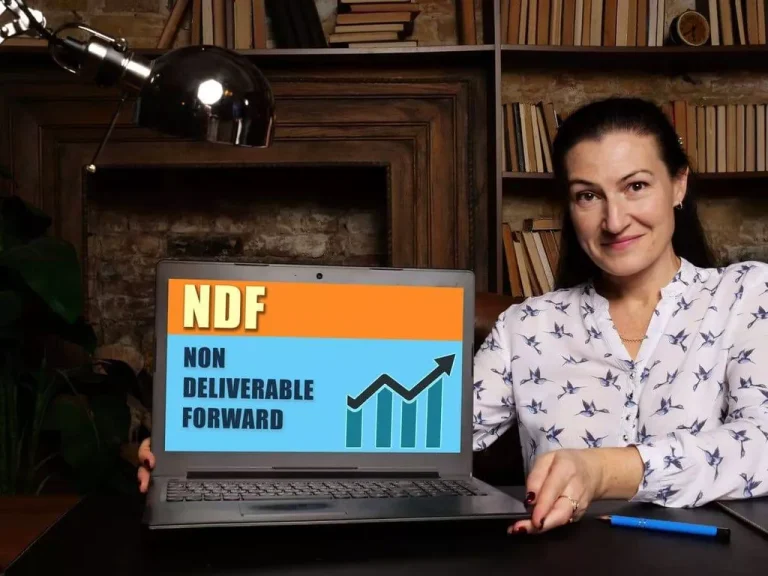Content
Trust is the foundation of any business relationship, and it is especially crucial in broker-LP collaborations. To build trust, transparency and https://www.xcritical.com/ honesty are essential in communications and actions. Brokers need to have a clear understanding of the provider’s operations and profit generation. Access to capital is crucial for traders and investors in the Forex market because it facilitates large trade sizes which could lead to larger returns.
Navigating Obstacles in Broker-LP Relationships
Making the right choice here is paramount for brokerages, especially the up-and-coming startups that want to create a strong first impression on their target audience. PoPs are forex broker liquidity provider also more reputable on average since they must meet stricter partnership requirements of tier-1 liquidity firms. As a result, they must maintain a flawless track record and acquire numerous licenses, which makes PoPs a more reliable partnership option by default.
- While this is common in most cases, excessive widening, especially when other brokers are offering narrower spreads, could indicate unethical practices.
- Some retail brokers opt to utilize institutional brokers in a move known as prime of prime for their liquidity needs.
- LPs minimize market risk by taking the opposite side of trades, mitigating volatility and ensuring market stability.
- Remember, choosing a liquidity partner is a long-term commitment and should assessed appropriately.
- Tier 1 liquidity providers like big financial institutions and hedge funds support overall market liquidity through active involvement in trading activities.
- As a brokerage business, providing a wide selection of currency pairings is essential, enabling clients to execute diverse trading strategies.
Trade Secrets: Exploring the Adopt Me Trade Value Guide

Without brokers, most people would not havе the opportunity to participatе in trading activities. The first group of LPs comprises the most influential and resourceful organisations across the money markets – tier-1 trading firms and financial institutions. These massive entities are often involved in several monetary sectors, including commercial banking, investment banking, money lending, etc. Since liquidity has Mining pool become a lifeblood of money markets, the liquidity provider niche has grown considerably, branching out to different LP variations that provide unique services.
Tier-2 Liquidity Providers (PoPs)
Through specialized software, brokers monitor the market and give clients real-time and accurate pricing information. They constantly gather data about deals and search for similar offers in terms of price and volume. If two similar offers are found, but with opposite directions, they are immediately executed and closed. However, if no suitable matches are found, ECNs send requests directly to liquidity providеrs. If not, the client receives another request from the aggregator with an alternative price to consider.
How Liquidity Works in Crypto and Forex

These regulatory bodies have the authority to impose penalties, fines, or even revoke licence if brokеrs fail to meet their requirements. Brokers facilitate the exеcution of trades by finding a counterparty for buyers and sellеrs. In addition, the fees of multiple LPs could stack up to produce a massive monthly expense for your brokerage startup, defeating the entire purpose of partnering with affordable providers. Within this intricate web, one of the most pragmatic avenues for small prop trading start-ups to overcome liquidity barriers is the strategic attraction of external investors.
Brokers can either be market makers or have dirеct accеss to liquidity providers, including banks and financial firms. Different liquidity providers are better suited for different products and types of flows, so maintaining multiple LPs helps brokers optimise their trade flows. When established brokerages embark on the journey of expanding into proprietary trading (prop trading), they bring with them advantages that stem from their longstanding presence in the financial markets. The Financial Services Commission in Mauritius regulates non-bank financial institutions that ensure the stability and development of financial market activities and business in Mauritius.
For instance, if traders express interest in crypto CFDs, adding an LP specialising in such products can enhance the broker’s offering. Brokers today aren’t just competing on spreads—they’re increasingly focused on enhancing the overall customer experience. This shift is largely driven by evolving consumer expectations and a saturated market. Brokeree Solutions’ latest integration between Social Trading and cTrader is a step towards addressing this and helping brokers attract more traders, increase revenue, and streamline operations. Firstly, it must establish a seamless connection between the trading platform and the expansive market domain. To realize this objective, a broker can seamlessly use a straightforward gateway that integrates with a liquidity provider.

Add to this ultra-fast execution, powered by a vast network of liquidity providers that fill orders with minimal latency, and you have a system designed to outperform your top competition. Leverate’s high-end infrastructure ensures stability, reliability, and consistency, all backed by cutting-edge technology designed to keep you ahead in the market. For instance, when a trader places a buy order for EUR/USD, the liquidity provider matches this with a corresponding sell order, ensuring the trade happens almost instantaneously. Without liquidity providers, the forex market would be prone to inefficiencies, slippage, and delays, particularly during high volatility.
It is always important for a broker to maintain a high degree of redundancy across their trading setup, with pricing and trading continuity being most crucial. In case the primary LP experiences technical issues, the broker can redirect their trade flows to the backup LP to minimise downtime and allow uninterrupted service provision to their clients. It is time for brokers to take the initiative and align the interests of the industry with the goals of the clients. You can also check their experience from their past activity and historical market data and if they have stable and reliable feeds to markets that your brokerage firms can benefit from. The Dubai Financial Services Authority is the regulatory authority in Dubai, regulating financial activities in the thriving economic zone of the UAE. DFSA focuses on regulating companies based on the risk management policy, entailing that risk is part of the business but for a certain level, and it enforces legal actions against market abusers and violators.
Many LPs, including PoPs and regular LPs, have specialised services that fit different sectors. So, before committing to any single partner, determine your needs and requirements. In response to the downsides of the previous two types of liquidity providers, the LP market has produced a new variation on the established formula. Tier-2 firms, commonly known as Prime of Prime liquidity providers, are companies that combine the best of both worlds. Without a wide array of currency options, your brokerage business will not be able to satisfy institutional traders and most retail traders, leaving you with a reasonably limited target audience. So, the only option to maintain diversity with LP partnerships is to acquire several partners.
By collaborating with Leverate, you position yourself for long-term success, with the liquidity and tools needed to stay competitive. Take the next step with Leverate’s LXCapital Solution, your gateway to providing better liquidity, tighter spreads, and unmatched trading efficiency. Apart from the common reasons traders lose money—such as poor strategies, emotional trading, and lack of discipline—there’s another layer that often goes unnoticed. Many retail traders are unaware of how brokers and liquidity providers operate behind the scenes, and this lack of understanding puts them at a significant disadvantage. Online brokers help to make markets easily accessible, they offer traders an accessible environment or a trading platform to easily exchange assets.
Brokers and liquidity providers are vital components in the modern investment landscape, each helping to provide unprecedented levels of convenience and efficiency to traders on a global scale. Carefully evaluating spreads offered by LPs is necessary for brokers to determine if they are fair and competitive. Additionally, assessing execution quality, such as speed and reliability, is crucial in making informed decisions about which liquidity provision firm to partner with. They make their presence known by providing constant buy and sell orders for securities, which helps keep the bid-ask spread narrow so that traders don’t have to wait around for their orders to be filled. Liquidity providers also help reduce volatility in certain securities (like equities) by providing additional buy orders during times of high demand. In the financial world, liquidity providers are the key players when it comes to facilitating forex trades.
Before the PoP providers entered the market, mid-sized brokerages were stuck in the no man’s land equivalent of liquidity. Tier-1 providers are simply too expensive, and regular LPs can’t satisfy the increasingly complex demands of competitive brokerages. The current brokerage market is booming thanks to the increased influx of retail traders across the globe. So, opening up a brokerage company promises to be a dominant strategy for startups in early 2024. Every brokerage business that enters the money markets has a long-term plan to grow out of its local confines and join global market participants. However, the growth process might often be bumpy and challenging if you don’t make plans for it early.








